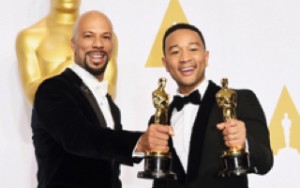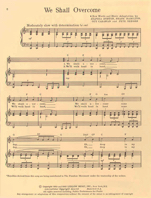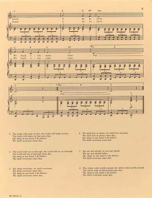
Since the time of Martin Luther King Jr., the people of the United States have made tremendous progress toward racial equality in our society. Segregation in public places has ended, protective laws have been passed, and many people have opened their minds and hearts to see beyond racial differences. Although this is true, that does not mean that racial tensions are nonexistent today. While divisive lines have been blurred over time, much of society still holds onto the hope that one day they will be erased altogether.
Rocker Tom Morello’s song “Marching on Ferguson” is an example of a direct-response form of protest music in reaction to the shooting of Michael Brown, an unarmed black youth, by Darren Wilson, a white police officer in Ferguson, Missouri. As a more presentational song, the tone of this rock piece is capable of instilling anger and discontent in the minds of audiences as they listen. It is part of the “Artists for Ferguson” campaign that “will see musicians creating and donating songs to help support a legal fund for the arrested Ferguson protestors” (Kreps). This piece is not only meant to inspire through the music, but it also provides more practical assistance to the movement by raising funds to release imprisoned protestors. Another example of a song that has been released in direct-response to Ferguson includes J. Cole’s “Be Free”. Straightforward lines such as “ain’t no gun they make that can kill my soul” take a stand against racially motivated police brutality, which is believed by many to be the cause of Michael Brown’s death. As is common among artists responding to a crisis, Cole was vocal over social media about the incident and even visited Ferguson in person. This song is just one manifestation of the initial anger felt by many in response to the shooting. Released shortly after the Ferguson crisis began, both “Marching on Ferguson” and “Be Free” possess lyrics and melodies filled with anger, confusion, and calls to action against the aspects of society thought to be causing so much injustice in today’s world.

Even though brand new civil rights music is continually emerging, the protest music of the past has not been forgotten in this new era. In particular, the song “We Shall Overcome” has become an anthem that bridges old and new civil rights protests. This piece developed from early twentieth century African American hymns, and it was soon picked up by young civil rights activists. This song truly came to the forefront of the Civil Rights movement when Pete Seeger, an American folk artist and activist, rewrote and recorded “We Shall Overcome” bringing it nationwide recognition. This song was sung in the 1950s and 1960s “on protest marches and in sit-ins, through clouds of tear gas and under rows of police batons” (“We Shall Overcome”). In this new era, “We Shall Overcome” is used in a largely participatory manner because of its well-known nature and symbolic connection to the past. In particular, this song has been used in multiple Ferguson protests and marches across the country in order to express solidarity with those in Missouri and promote unity among those searching for equality. Marchers are able to sing this piece in unison and instill in each others’ minds a hope for the future.


While there are differences in style, genre, and context between the music of the old and new Civil Rights eras, it is clear that the new wave of Civil Rights protest music has no intention of separating itself from its past. In fact, the messages found in twenty-first century music become more credible and are strengthened by the bonds they share with the Civil Rights music that came before them. As time passes, the music that continues to emerge has the potential to inspire generations of people to move to action and create positive change in a diverse, evolving world.
Cole, J. “Be Free”. 2014. MP3.
“Glory” (From the Motion Picture Selma (2014)) Oscar Performance. Perf. John Legend and Common.
Academy Awards, 23 Feb. 2015. Web. 9 Nov. 2015.
“Glory”. Perf. John Legend and Common. VEVO. N.p., 12 Jan. 2015. Web. 01 Nov. 2015.
Kreps, Daniel. “Tom Morello Drops Protest Song ‘Marching on Ferguson'” Rolling Stone. N.p.,13 Oct. 2014. Web. 09 Nov. 2015.
Morello, Tom. “Marching on Ferguson”. 2014. MP3.
Tillet, Salamishah. “The Return of the Protest Song.” TIME. N.p., 18 Jan. 2015. Web. 1 Nov.2015.
“We Shall Overcome.” Library of Congress. Library of Congress, n.d. Web. 07 Dec. 2015.